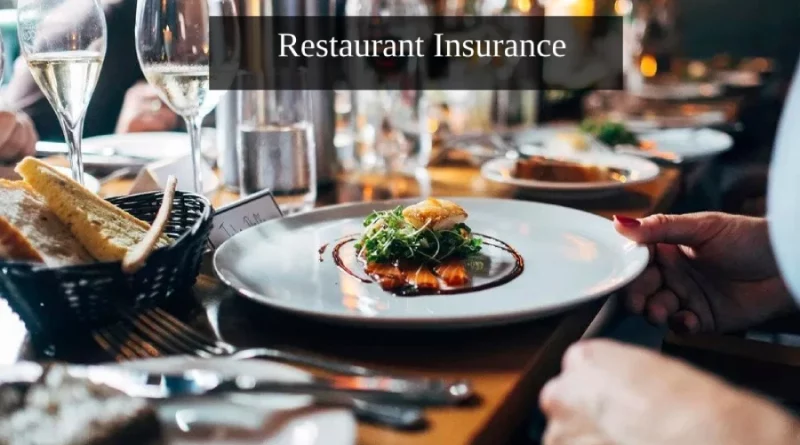Understanding the Importance of Restaurant Insurance
Picture this: a customer gets food poisoning after visiting your restaurant, and they sue for thousands in out-of-pocket medical fees and expenses. Having the right insurance policies can protect you from such expensive lawsuits.
Restaurant owners typically need a combination of small business insurance coverages. Some of the most important include commercial property, general liability, and workers’ compensation.
Commercial Property Insurance
Whether opening a restaurant in your home, running a neighborhood eatery, or managing a national chain, it is essential to understand the risks your business faces and how insurance can help protect you. In this guide, you’ll learn about the available restaurant business insurance types and how much different policies can cost.
Commercial property insurance covers replacing your restaurant if it is damaged by fire, water, or other unforeseen events. It’s often included in a business owner’s policy (BOP) alongside other small business insurance coverages like general liability and workers’ comp.
General liability insurance protects your restaurant if a customer is injured at your location, such as when hot food or coffee spills on them or if they are made sick by eating the restaurant’s food. It also pays for legal fees and settlements if someone accuses your restaurant of copyright or trademark infringement.
General Liability Insurance
Restaurants have many visitors daily, meaning the risk of injuries is higher than in other businesses. General liability insurance may cover the legal fees and settlement costs if a patron slips and falls or someone gets food poisoning from the restaurant.
The property insurance component of commercial business policies covers damage to your buildings, furniture, and kitchen equipment. Common risks covered include fire and smoke, wind and hail, water damage, and damage from aircraft and vehicles. A hired and non-owned auto policy is typically needed if you have employees who drive personal cars for work purposes, and business interruption insurance can help pay your expenses when the restaurant is forced to close due to an event covered by the policy.
Some restaurant owners purchase a business owner’s policy, or BOP, which bundles general liability and commercial property coverage in one package at a discount. Workers’ compensation and crime are also available as add-ons to a BOP.
While some agencies may provide insurance for pubs and restaurants, most will intentionally decline to cover a delivery exposure. Choosing a reputable restaurant insurance Denver with expertise in specific food and beverage. They can give you the specialized insurance package that your restaurant requires.
Business Auto Insurance
There’s no way to predict what sort of injury or property damage a restaurant could face, but six types of commercial insurance for restaurants can help you cover the costs. General liability protects you against claims of third-party injuries or illnesses (for example, if someone slips and falls on a recently mopped floor). Commercial property offers protection against the cost of rebuilding or replacing your business’ belongings in the event of a disaster. And workers’ compensation and commercial auto ensure your employees are covered against job-related injuries or illnesses.
You’ll need commercial auto coverage if you or your employees use their cars for the restaurant business, like making deliveries. Consider hired and non-owned auto liability coverage and business interruption insurance to cover lost profits if your restaurant can’t open after a loss. Finally, for errors and omissions, insurance protects you from lawsuits over a mistake or oversight that could hurt your business.
Business Interruption Insurance
While commercial property and business auto insurance protect the physical assets of your restaurant, they do not cover revenue lost while a restaurant is closed for repairs. That’s where business interruption insurance comes in.
This coverage helps pay the fixed costs of your restaurant, including payroll and administrative expenses, when a covered peril forces you to close for a prolonged period. It also helps pay for moving your business to a new location if necessary so that you can continue operations and generate revenue.
To qualify for this coverage, the event that triggers a claim must be a direct physical loss to the property. During the COVID-19 pandemic, numerous restaurants were forced to shut down due to executive orders, and as a result, many insurance companies denied business interruption claims.
Visit the rest of the site for more interesting and useful articles.

